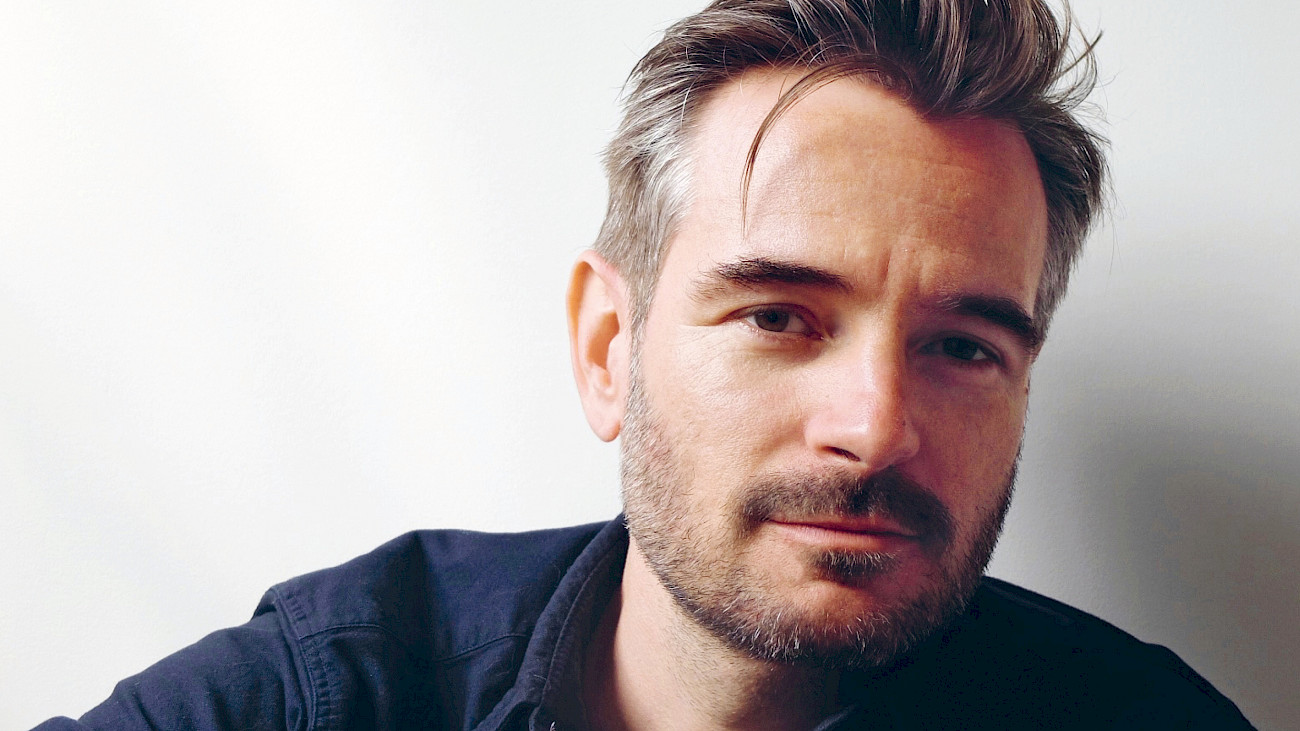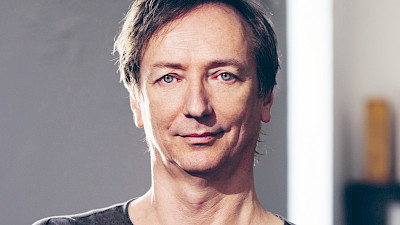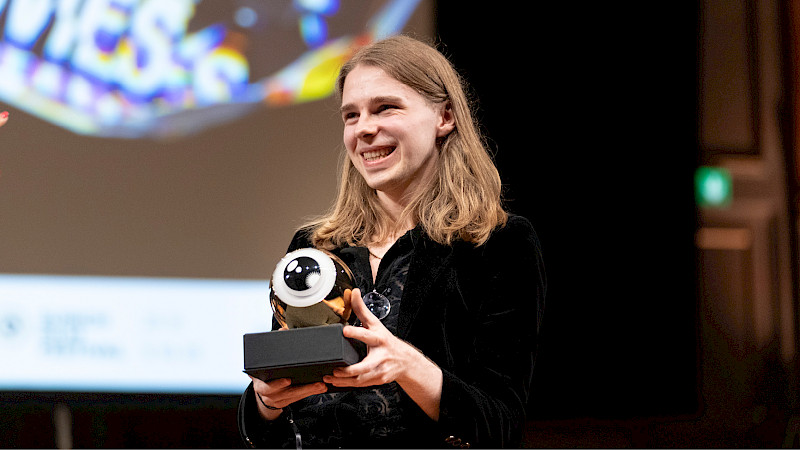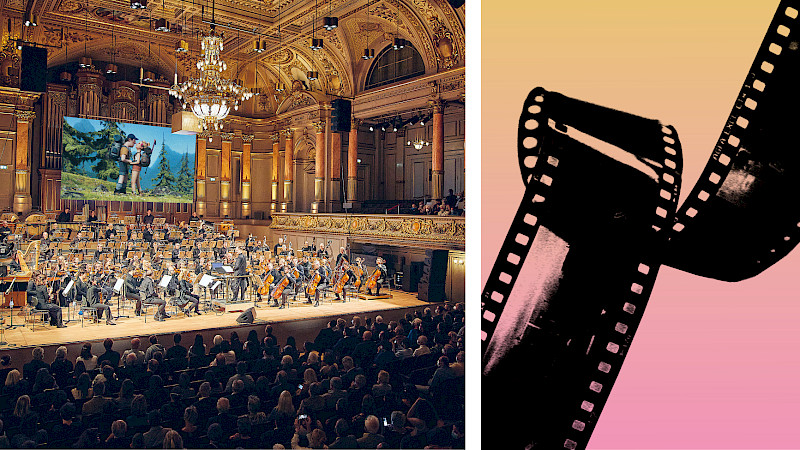
It once Began with «E.T.»
Swiss film music composer Mark Bächle, who lives in New York, has reached the top at the latest since winning an Emmy Award. We present his work at the Zurich Film Festival.
From Basel to New York: that was the plan for the then 23-year-old Mark Bächle in 2000. His parents supported his plans, but it was not planned that he would stay. So the question arises as to whether his move promoted creativity or whether it was purely a location decision. Certainly more than the latter, the answer comes promptly. New York is a tough place for musicians, but also very stimulating. It was not only a challenge, but also a test of strength. A valuable experience – and perfect for creativity.
Today he no longer lives downtown, but by the sea, outside the city. «I was able to build a studio here, and Covid has totally normalised remote work. I go to the sea every day, even if only for ten minutes. As a Swiss, this vastness will always be a bit foreign and mysterious to me, but it gives me perspective and objectivity.»
Coincidences, setbacks and a bit of luck
There is always a certain pressure when a composition is commissioned, the sound has to be found; but Bächle is almost serene about it. He quotes Leonard Bernstein: «To achieve great things, two things are needed; a plan, and not quite enough time» – with a plan and too little time, great things come into being.
And great things have been created in all these years. Bächle's answer to the question of how to fill his rucksack is almost modest: Perseverance, patience, finding courage despite setbacks and rejections, and seizing the right opportunities. He only had a bit of luck because he wasn't alone in New York: «I've been here since day one with my wife (then girlfriend) Charmaine, we built everything together. There were quite a few ups and downs, especially in the beginning. Looking back, I'm quite proud of our story.»
The other good fortune was the mentors who recognised his potential and nurtured him. One was Swiss musician and producer Teese Gohl, who was responsible for numerous film scores; the other was New York composer John Corigliano, who won an Oscar in 2000 for the soundtrack to The Red Violin. Both very influential and generous: «I was an assistant and collaborator with both of them and was able to see early on how the professionals operate in the top league. «And how does he work himself? He always collects a lot of material before he sits down and composes, says Bächle: «Just like in a good kitchen, the mise en place is the key to success.»
This requires patience above all, because you can't control much of the process, but at least you get to know it better: «Good ideas come spontaneously and not always at the best moment, for example in bed or in the car or in the forest; I then make a voice memo when I need to hold on to something.» Mark Bächle has played the piano and drums since childhood. Now and then he records himself for his compositions. But musicians with their own character are more exciting. A lot can be done electronically today, but without human participation, music has no soul, he says.
«Revise, edit, pull your hair out»
In 2021, Mark Bächle received an Emmy Award for his music for the documentary series «Tending Nature» – something like that doesn't happen every day. The impact of the award cannot yet be quantified. The network of contacts has certainly expanded, and he can't complain about a lack of work: «But most of the commissions still come from the sources I've gathered over the years.» He was pleased by the perception of the award back home, also because many old friends would have contacted him once again.
He continues to work both as a composer and as an orchestrator. The working methods are quite different: «Composing is a struggle, it takes a lot of sitting and self-discipline. Revising, editing, starting over, pulling your hair out - look at a Beethoven manuscript!» But when you get into the flow, it's a great feeling. Orchestrating, on the other hand, is a craft: «It doesn't burden me with the same pressure of groping in the dark and having to search or find something. I like doing it and working as an orchestrator with great composers; it gives insight into their worlds and can be very fun. Everything just has to move insanely fast in film; the pressure of orchestrating is that you have to work at lightning speed and still be meticulous.»
The first cinema film Mark Bächle once saw was «E.T.», for him a good introduction to this world. He was particularly influenced by the 1980s and 1990s: «Steven Spielberg, Martin Scorsese, Robert Zemeckis and David Lynch were all at their zenith back then. In more recent times, there is more unconventional film music that captivates.«All Quiet on the Western Front» For him, the best soundtrack of recent years is clearly Volker Bertelmann's for Edward Berger's «All Quiet on the Western Front»: «The music is brutal and really gets under your skin.»
He considers it a privilege that he himself has landed in this scene: «I have found a niche here that suits me really well. The fact that you can take the audience into a fantasy world for 90 minutes, move something deep or stimulate thoughts is exciting and important for me.» Mark Bächle says that he is always thinking about what composing means. After all, the profession is not essential for survival – and yet: «Culture plays an important role in people's lives. It inspires the time we can spend on our planet.»
****
Volker Bertelmann aka Hauschka
Edward Berger's war drama «All Quiet on the Western Front» was awarded numerous prizes in 2023. The film is perhaps also so tough and disturbing because the Ukraine war is with us every day and we cannot even imagine the significance of such a war for the individual fighter on the front. In addition to the incredibly powerful and intense images, the music, which is built on a three-tone motif, intensifies the human misery. To set the brute harmonium in contrast to an almost poetic soundscape seems courageous.
This music was composed by Volker Bertelmann aka Hauschka, who received both a BAFTA Award and the Oscar for Best Film Score for it. He explains: «The three-tone motif of the harmonium is the sound of the war machine. It is like a war horn and at the same time, because of the brevity of the motif, it can be used very well in scenes that leave little room for music. In contrast, the poetic soundscape expresses the wish to come home again and find peace. It is the religious element. War machinery and the longing for peace are the two opposing poles here.»
At the 11th edition of the International Film Music Competition, Volker Bertelmann will chair the jury. In the second part of the evening, the orchestra will perform excerpts of his works. Also on the jury are conductor Frank Strobel, film composer Mark Bächle, director Sophie Linnenbaum and director and animator Gabrielle Selnet, whose short film «Au Revoir Jérôme!» was chosen for the competition.
Translated with DeepL.com






